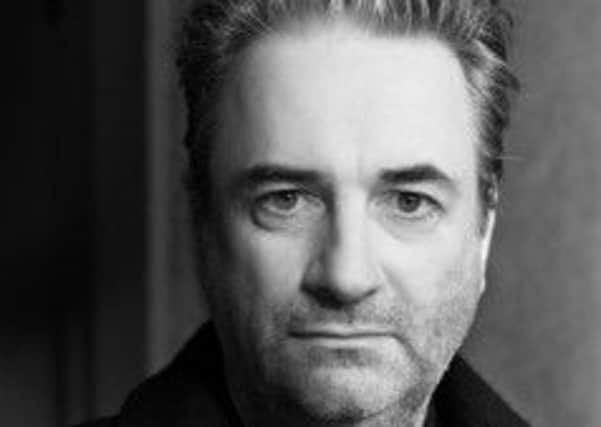Northern exposure to sound of music


There’s a certain bravery in calling a book The North (And Almost Everything In It). But then Paul Morley has never been afraid to stick his neck out.
As a writer at the NME at the height of punk, he was at the cutting edge of music journalism, developing a writing style all his own. Subsequently he went on to form the record label ZTT with producer Trevor Horn and is credited with the famous “Frankie Says” T-shirt slogans for the band Frankie Goes to Hollywood.
Advertisement
Hide AdAdvertisement
Hide AdIn the BBC TV series How To Be a Composer he spent a year at the Royal Academy of Music learning how to create a string quartet despite being unable to read music or play an instrument.
The North (And Almost Everything In It) is a part-memoir and part-history, reflecting on his upbringing in Reddish, Stockport, in the 60s and 70s, and sprawling with digressions into the North and its people. Everything from the Romans to Bernard Manning, Jodrell Bank to Julie Goodyear is covered in an engrossing read.
Morley, 56, believes it was “to some extent inevitable” that he would write such a book retracing his own footsteps.
“Living down in London, working as a certain sort of journalist, I noticed the further I moved away from the North, the more people considered me a Northerner, and an expert on the North. But I realised there were horrible gaps in my history and learning and understanding.”
Advertisement
Hide AdAdvertisement
Hide AdBy “piecing together how my North grew and how my mind grew a landscape starts to develop”; the book is an attempt to explain to others those stages of personal development.
Thus he considers the canals, railways and mills that were all around him as a boy; his fascination with football and cricket; his boredom with grammar school and his love of pop music. His research led him in multiple directions.
“As the idea went further on, it got more detailed,” he says. “I realised I could only scratch the surface of the surface of the surface. The book is a combination of specific history in the 60s and 70s and how the streets that I played on evolved, the inventions that happened in the North.”
Morley was actually born in Surrey but the family moved to the North West, to be nearer his mother’s roots, when he was seven years old. He says he was “one of those younger people who took it for granted where I was planted”. He only became aware of “regions and separateness” when he began to follow Lancashire County Cricket Club and Manchester City FC. It wasn’t until he moved south that his accent was commented upon. “I took it for granted that was how people spoke everywhere. I figured we were ground zero, how it was meant to be. I thought the South was wrong. It turned out it was the South who controlled things, not the other way round.
Advertisement
Hide AdAdvertisement
Hide Ad“But the accents of Yorkshire and Newcastle and Liverpool sounded more real to me; down South people were putting on airs and graces.”
Poignantly in his book, Morley recounts how his father never really came to terms with life in the North and committed suicide at the age of 41, after driving south to Stroud, in Gloucestershire.
At the time relatives suggested to Morley, then a young journalist in London, that he might move back to the North West. He, however, had been inspired by seeing the Sex Pistols in Manchester and was determined to make the most of writing about music for the NME.
Punk had given Northern musicians and writers such as the Buzzcocks, Joy Division, The Fall, John Cooper Clarke and Morrissey the realisation that “you could actually do it” and Morley became their chronicler. “It was a huge transformation,” he says. “It gave me the opportunity to write about music from where I lived, it was liberating.”
FESTIVAL DATES AT THE DOUBLE
Advertisement
Hide AdAdvertisement
Hide AdPaul Morley appears at Wakefield Literature Festival on September 28 – details from www.wakefieldlitfest.org.uk – and at Ilkley Literature Festival on October 6 – www.ilkleyliteraturefestival.org.uk.
Towards the end of The North (And Almost Everything In It) , Morley compares the fragmented narrative that dominates the book to that of The Life and Opinions of Tristram Shandy.
He sees Sterne’s frequent digressions as a forerunner of the internet; similarly his own thought processes “don’t happen in a linear way; it’s something that happens all at the same time in my imagination”.